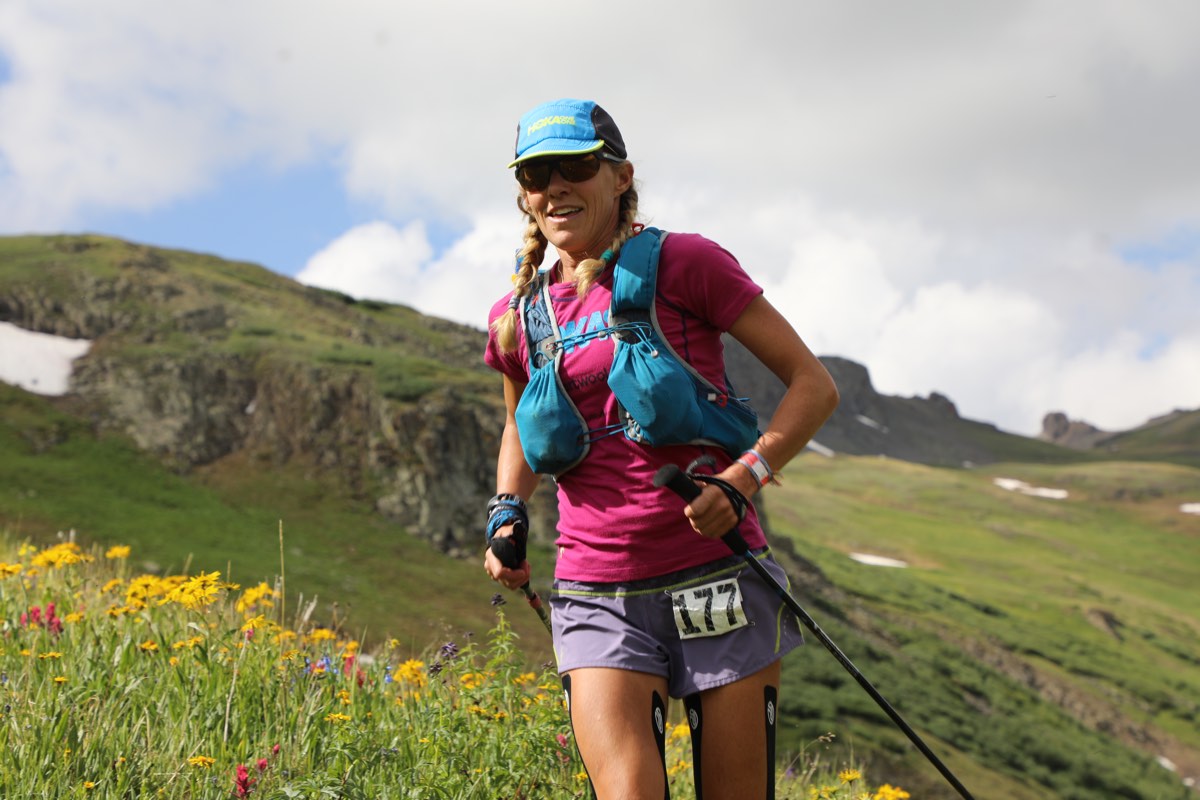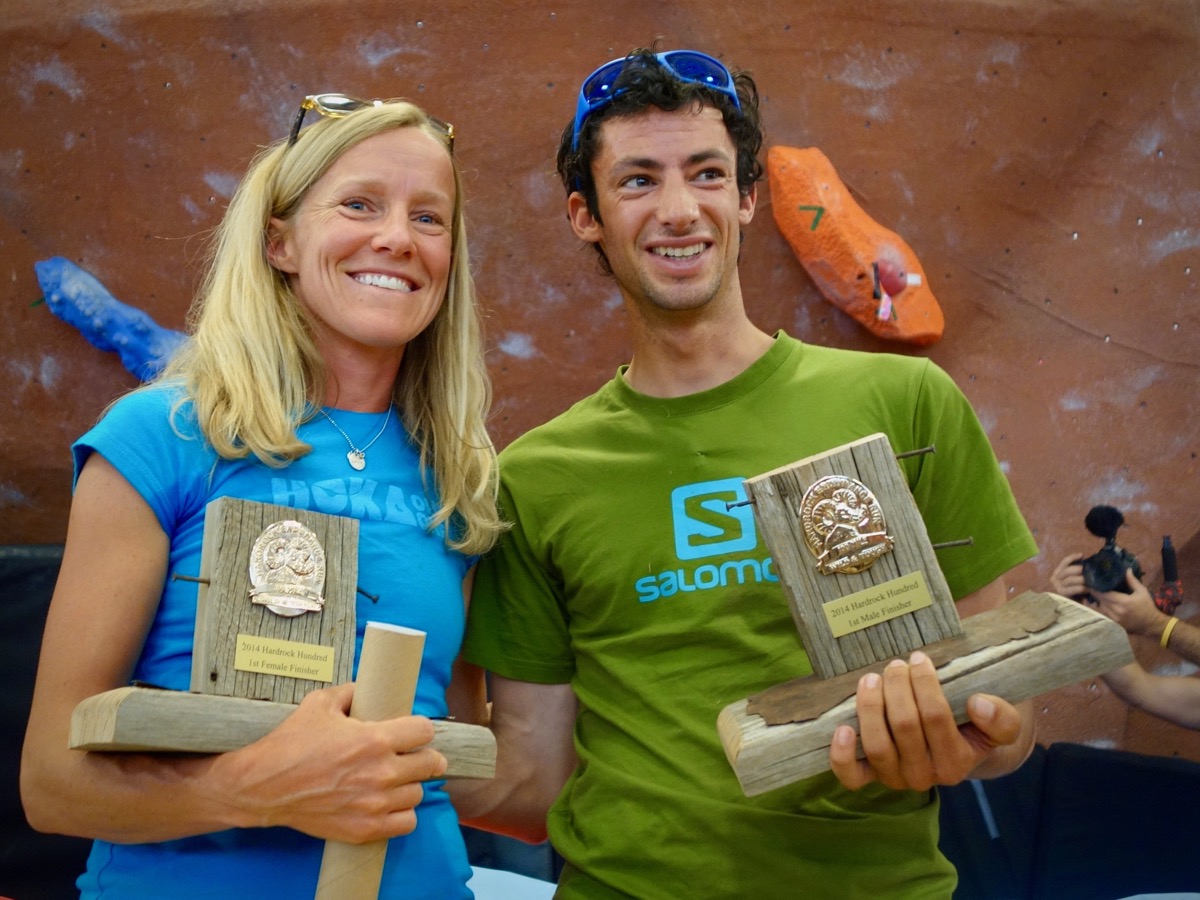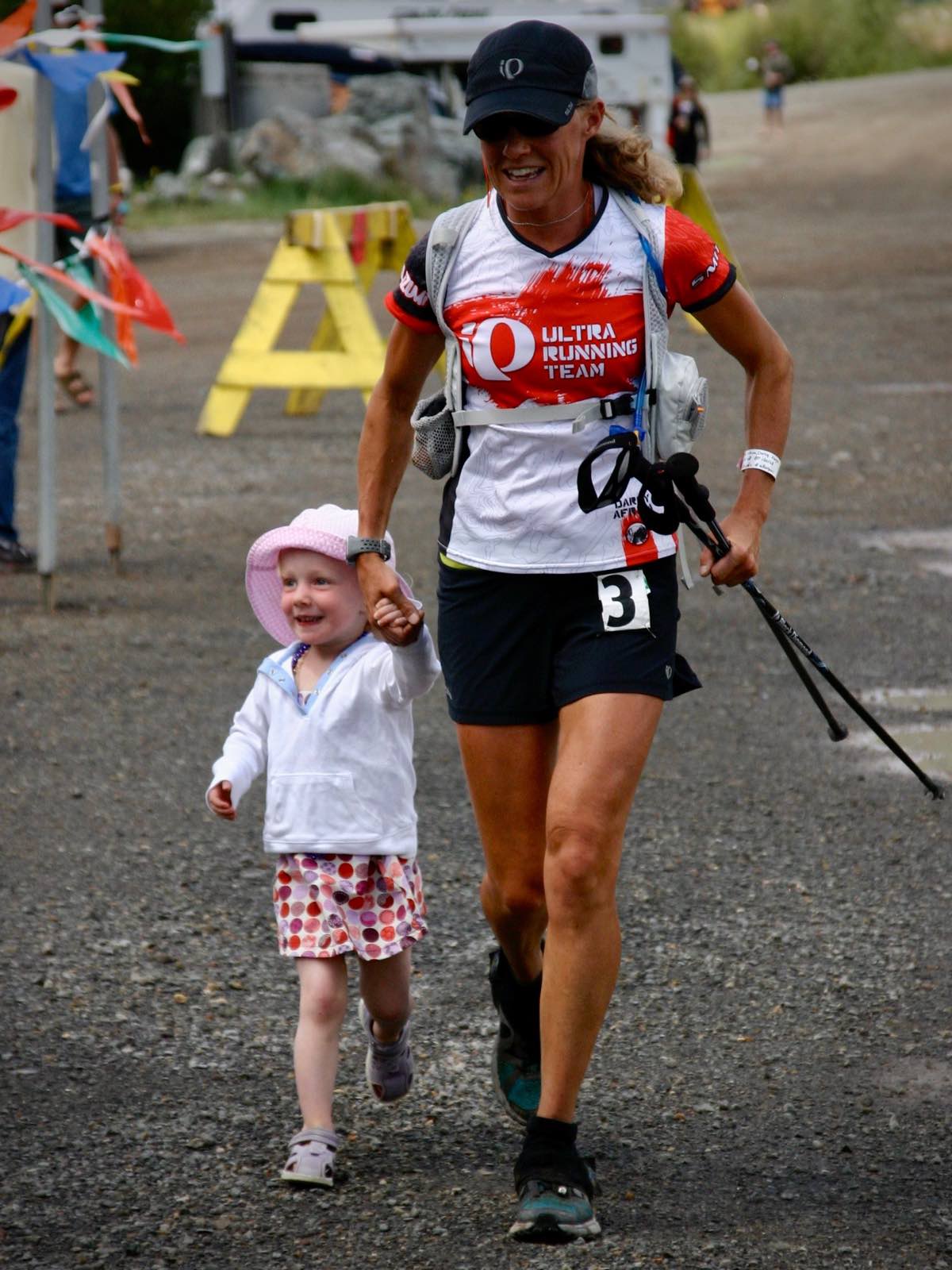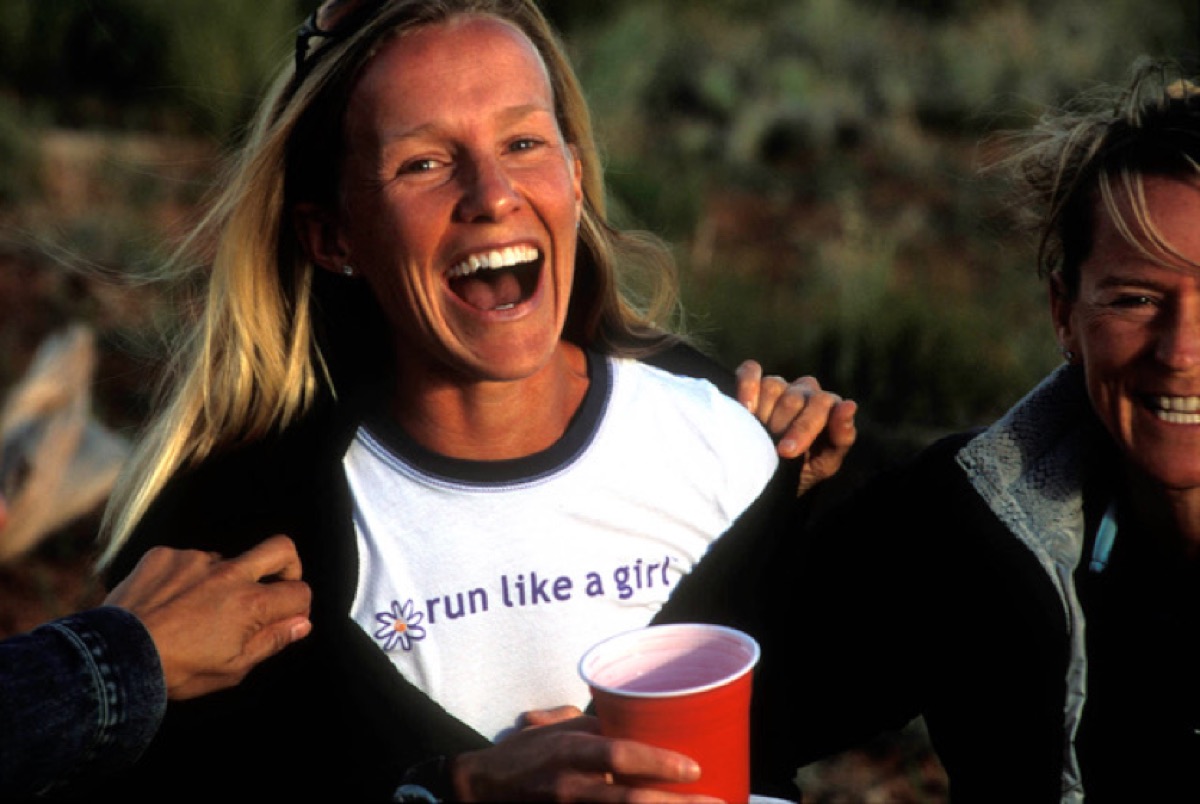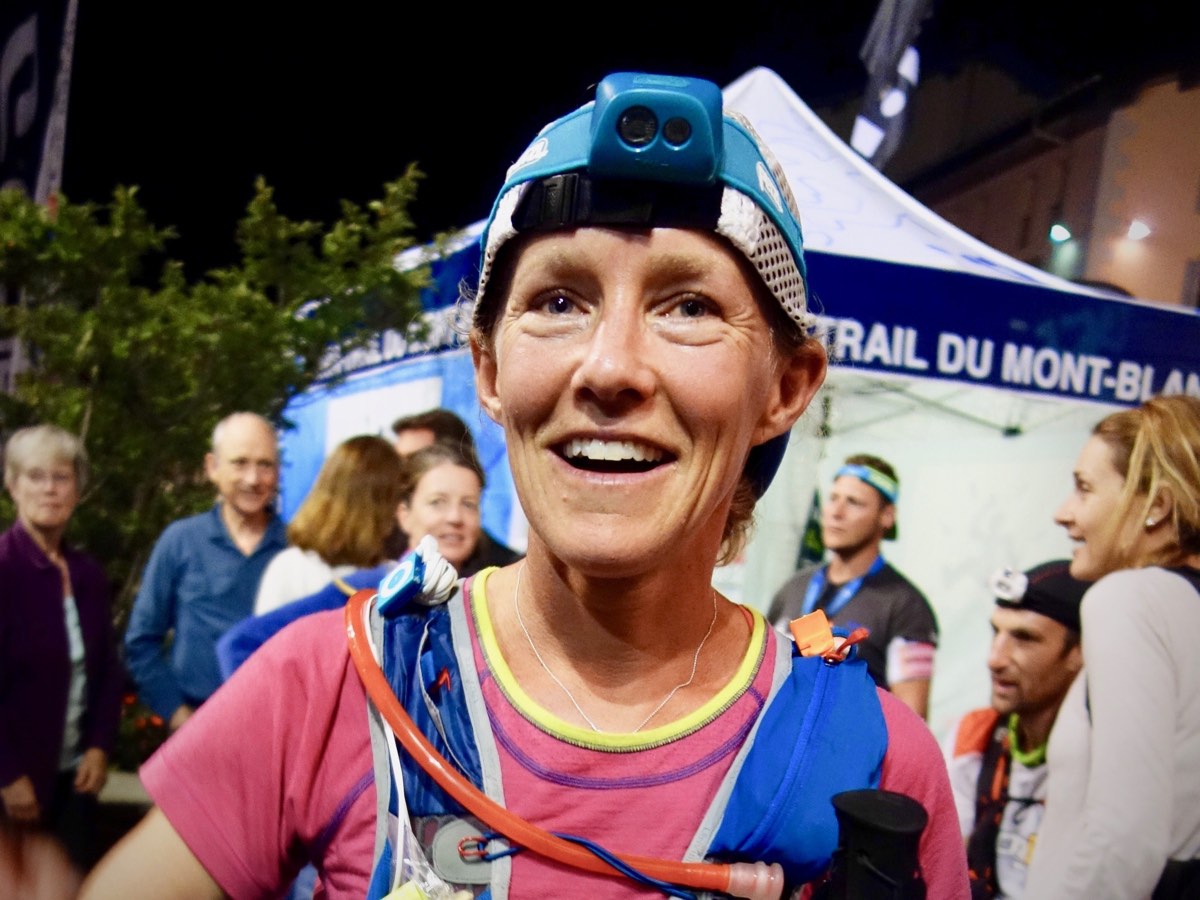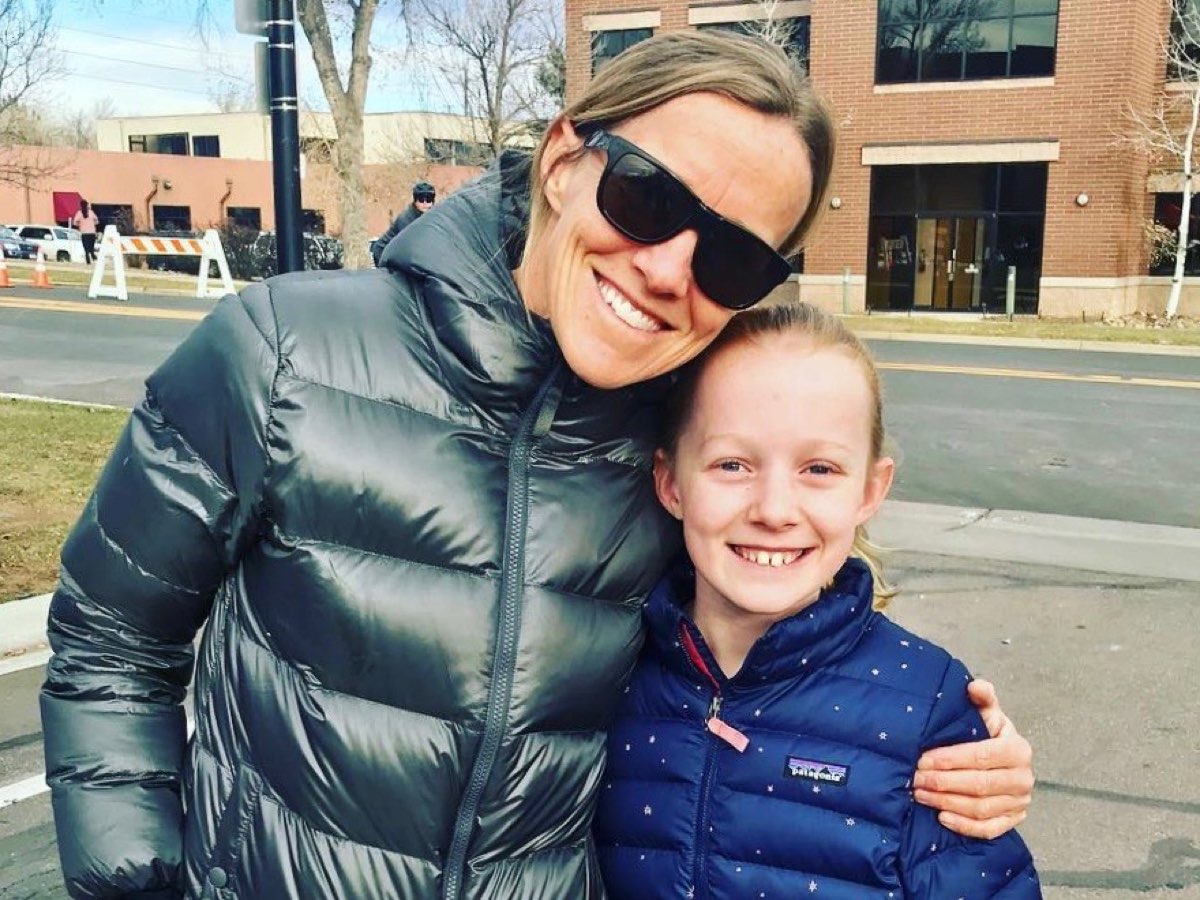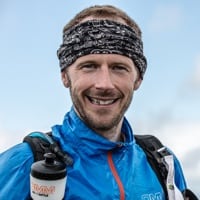On the surface, it may not seem like it, but 44-year-old Darcy Piceu has several key advantages that have helped shaped her into the champion trail runner she is today. It’s probably also fair to say that Darcy, now a legend of longer-distance U.S. trail ultrarunning courtesy of her 18-plus years of sport dominance, has carved some of those advantages out of disadvantages that have come about through life and time on the trail.
Firstly, as we well know, the longer the distance the more of a mental game it is. Darcy has a Master’s degree in counseling psychology and has worked as a psychotherapist for a couple of decades.
“It really helps to learn how to work with your mind,” she says. “I’ve started to utilize mindfulness techniques and meditation during races. When all the negative thoughts come up, it’s a way of training yourself not to necessarily follow them. You come back to the present moment and focus on taking care of yourself, as opposed to spinning down that rabbit hole of, What am I doing? This hurts. Though I’m still guilty of a pity party like anyone!”
“You tend to be hard on yourself. But one of the first things is to be gentle. Practice noticing that the negative thoughts are there, but don’t judge them, don’t let them take you down the rabbit hole. Get comfortable with the discomfort, make friends with it.”
The blonde, tanned, usually smiling Darcy knows a thing or two about being comfortable with discomfort. In fact, she’s pretty much made a running career out of succeeding in long, tough ultramarathons where discomfort is a part of the experience. In 2018 alone, she was undefeated at 100 miles, winning on four notably different courses–the technical HURT 100 Mile, the mountainous Ronda dels Cims in Andorra, the mountainous but runnable Angeles Crest 100 Mile, and the fast Javelina 100 Mile. For her efforts, she was voted third in UltraRunning Magazine’s 2018 (North American) Ultrarunner of the Year awards.
It was one of her better years, but they’re not particularly surprising results. Darcy has completed the Hardrock 100 seven times, taking first three times and second all the others. She’s placed third at both UTMB and the Western States 100. She’s won the Rocky Mountain Grand Slam, which involves finishing the Bighorn 100 Mile, Hardrock, Leadville Trail 100 Mile, and Wasatch Front 100 Mile all in the same year. And she established several FKTs, most notably the supported women’s fastest known time on the 221-mile John Muir Trail. At the time of this article’s publishing, UltraSignup records 45 wins to her name. If it’s not already clear, Darcy is nails.
Which result is she most fond of? “In 2012 I ran the Rocky Mountain Slam. I came away with three wins and it was just an amazing year for me. And the next year after that I felt really strong. UTMB has been really fun. I was really turned off by the Super Bowl vibe to be honest and the same with Western States. But if you’re prepared for it and you know that’s what it’s like, it’s easier to deal with.”
Another disadvantage that Darcy uses to her advantage is her childhood. “I learned a lot from seeing family members who weren’t emotionally healthy and who were really struggling themselves. It’s sort of like, ‘I don’t want to go down that path.’ It taught me about how I wanted to live my life. At a young age, I was going into self-preservation mode a lot. I think that is part of what drives me today.”
She is a single mom to 10-year-old Sophia, a situation that limits her training time and energy. “With kids your schedule is full and sometimes running has to take a back seat. I don’t log a ton of miles every week. There’s good and bad to that. I’ve sometimes felt I should have trained more, but that’s helped with my longevity. I hardly ever do 100-mile weeks. Over the years that’s been more due to the fact I have work and most of the time I’m a single parent. Part of the reason I’ve been relatively healthy for this long is that I don’t have a tendency to overtrain.”
Sophia often accompanies her to races. She’s a keen swimmer and shown little interest in running, until recently. “At Hardrock last year I said, ‘Do you think you’d ever want to run this race?’ And she said, ‘Yeah!’” Now, Sophia is enrolled in a running camp this summer. “I think it’s important to come back from a race when you haven’t done well and still have a great attitude about it. It’s okay to not always do well. I think that’s an important lesson.”
Many top ultrarunners might see a day job as a hindrance. But Darcy’s work as a psychotherapist seems integral to her love of the outdoors and its powers. “On the trails people are more open and willing to talk about what’s going on and willing to share. It’s a less threatening environment than one-on-one inside. I experienced that through years of running and also as an Outward Bound instructor. I saw how being outdoors in nature really brought a lot to the surface for people. I experienced that connection with myself and with others. Running ultras strips you of all the false pretenses we tend to show up with. So it’s a neat tool to use.”
Darcy’s been racing since 2001, having discovered the joys of running while at university. At Colorado State University she found a “love for and connection with being in the mountains–I skied a lot.” She studied natural resources/recreation and tourism, which she says is “the major you did when you just wanted to play outdoors.” But it wasn’t until a year abroad in New Zealand and Australia that she laced up her running shoes. “I was partying way too much. I decided that I needed to take better care of myself. Running was such a cool way to see wherever I was. In Christchurch, I would just go running on the country roads out there.” Returning to undergraduate school she realized Colorado had lots of great trails. “I got connected to the trail running community in Boulder.”
In 2001 she did her first 50 miler. In 2002 she was on the start line at the Leadville 100. “How was it? Hahaha. It was rough! My quads were so sore at the end! They just weren’t ready for something like that. I stood at the top of a hill near the end and just cried.”
Over time though, she has developed into a 100-mile specialist. “I’ve found that I can really dig deep in the longer races. I guess over the last six to seven years I’ve found the 100 miler is where I do best. A lot of it is experience and knowing that when you hit rock bottom you can pull out of that, and you do that multiple times over the years [of long ultras].”
Few runners are as synonymous with a race as Darcy is with Hardrock. She’s nicknamed Miss Hardrock. “I love those mountains and that community. The mountains and the weather totally rule there. It’s a true mountain race. If they were trying to get permits for the race now I don’t think they’d get them.”
How does she train? “It hasn’t changed much. But it does fluctuate. I try to get in an hour every day during the week, plus a two-and-a-half to three-hour run maybe midweek. If it’s possible I’ll get in a long run, or maybe two, depending on where I am in training, on the weekends. But I don’t track my mileage. If I can I’ll get to the gym maybe twice a week for strength training. Post-race maybe I’ll cycle to flush out the legs.”
“What I see changing [for me] is the ability to have really strong consistent, hard training cycles. When I was younger I would do week after week of hard efforts. Now I find myself on a week and off a week. And I’ve been letting myself go down that path and appreciate the more rest I’m allowing myself. My motivation lulls come at different times of year, such as winter. I don’t normally race a ton in the winter, which helps me rest for the next year. It can be struggle to get out the door. I feel the need to train more now. In the past I could get away with training a little less and still have a great race.”
What does she like to do when not working, running, or being a mom? “I wish I could say I’m a voracious reader or gardener or something like that! I have aspirations of doing those things, but it never quite happens. I love to go out with my girlfriends, getting dinner or going dancing. My girlfriends are really important to me.”
How has she maintained such impressive longevity in a sport that chews people up and spits them out? “When I feel like I’m starting to lose my spark, I have to go do something to remind myself of why I love the sport of long-distance trail running. For me that means going out all day on a trail I love without any real agenda. Maintaining your motivation and excitement for being out there still. Trail running and ultrarunning are incredibly important to me because they take me outside, in nature, where I can clear my head and take time to myself. Running helps me to be a more patient mom, more focused at work, and hopefully a better friend and partner.”
This year she plans a return to Hardrock and to make a first attempt at Italy’s 205-mile Tor des Géants, though she has some reservations about it. “Several people who ran TDG last year said doping was going on. I think that’s unfortunate and it’s unfair and creates an unequal playing field. I hope that that’s not going on, but if it is, you just have to go out there and do the best you can and try and enjoy yourself.”
She says the sport is different in every way from when she started. “There are so many more people now and sponsorships have shifted things. There was a time when you could wake up on Saturday and decide to do Bighorn or whatever next weekend and you could get in. That’s what’s hard to deal with. I really loved that. Now you have to know what your races are in November the year before and have everything planned out and that’s really hard being a mom. For me it’s actually gotten harder to leave and to be away. My daughter wants me to be around, she doesn’t want me to leave.”
She thinks gender inequality is still prevalent in ultrarunning. “It would be helpful to open up the discussion more. It’s got to come from both sides to even understand what’s going on. Discussions are starting to happen, light is being shed. That’s a good place to start.”
In life and running, Darcy has made it a practice to turn disadvantages and challenges into her advantages. “For me, having a job and a regular schedule, along with my daughter and training, can be helpful in not overtraining. Simply by not having the time to overtrain, I don’t,” she concludes. “That’s not to say that I don’t have times where I feel like I can’t get in the proper amount of training either. It’s a balancing act that occasionally falls on its head.” Something tells me she’ll continue to use this practice to derive happiness and success in the future as well.
Call for Comments (from Meghan)
Have you raced or gone on a trail running adventure with Darcy Piceu? Have you watched her race? Leave a comment to share your Darcy stories, and thanks!
